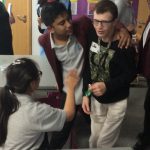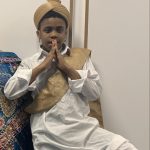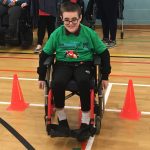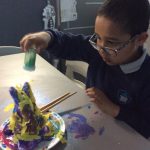_______ Spiritual, Moral, Social & Cultural Development
At Riverside Bridge School, we recognise that the personal development of pupils spiritually, morally, socially and culturally plays a significant part in their ability to learn and achieve. We therefore aim to provide an education that provides pupils with opportunities to explore different beliefs and experiences, to develop their own values, spiritual awareness, high standards of personal behaviour and a positive, caring attitude towards others as well as an understanding of their social and cultural traditions and an appreciation of the cultural diversity and richness of their community.
Spiritual Development is when pupils explore different beliefs and experiences, respect different faiths, feelings and values, enjoy learning about themselves and others and the surrounding environment both locally and worldwide, through imaginative and creativity teaching, where students are giving the opportunities to reflect on their learning and experiences.
Through spiritual development, all pupils will learn to:
-
develop their identity and self-worth;
-
develop an awareness of their own and other principles, values and beliefs; both religious and non-religious;
-
learn about themselves, others and the world around them;
-
understand better their own feelings and emotions.
Moral Development is when pupils learn about and recognise right and wrongs, develop an understanding of consequences for their actions, learn to follow the rules and boundaries that are put in place to keep themselves and others safe and develop an understanding that ethical issues can impact on how people make decisions and live their lives.
Through moral development, all pupils will learn to:
-
distinguish between right and wrong;
-
conform to rules and regulations for the good of all;
-
respect honesty and fairness;
-
tell the truth;
-
respect the rights and property of others and themselves;
-
listen and respond appropriately to the views of others;
-
reflect on the consequences of their actions;
-
value other people and their feelings and act considerately towards others;
-
learn how to forgive themselves and others.
Social Development is when pupils learn about using a range of social skills when engaging in social situations. They will have opportunities to develop their social skills by participating in local community activities, understanding that others may have different views on different situations and accept this; they will also learn to cooperate with others when working on projects and develop the skills needed to manage and resolve conflicts in an appropriate manner, if they should arise.
Through social development, all pupils will learn to:
-
relate positively to others;
-
share such emotions as love, joy, hope, anguish, fear and reverence;
-
show sensitivity to the needs and feelings of others;
-
participate fully and take responsibility in the classroom and in the school;
-
use appropriate behaviour, according to situations;
-
engage successfully in partnership with peers and work as part of a team;
-
exercise personal responsibility and initiative;
-
understand that, as individuals, we depend on family, school and society;
-
use individual skills and strengths when working in partnership towards a common goal as in school assemblies, work experience;
-
interact positively with others through contacts outside school e.g. sporting activities, visits;
-
support others;
-
show care and consideration for others by sharing and taking turns;
-
show politeness, cheerfulness, friendliness and actively want to do the right thing;
-
recognise the different skills of other group members.
Cultural Development is when pupils participate in cultural opportunities; appreciate, accept, respect and celebrate cultural differences.
Through cultural development, all pupils will learn to:
-
develop a sense of belonging to their own culture and being proud of their cultural background;
-
explore other cultures and beliefs;
-
respond to cultural events;
-
share different cultural experiences;
-
respect different cultural and faith traditions;
-
understand codes of behaviour, fitting to cultural traditions;
-
develop a love of learning about others;
-
develop an understanding of British cultural traditions, including all faiths;
-
appreciate the values and customs of other ethnic and faith groups which make up modern British society, and the world beyond;
-
understand similarities and differences between faiths and cultures.
Within our Growth Curriculum, our pupils’ SMSC have the opportunities to:
-
take part in a range of activities regarding social skills
-
develop an awareness and respect for diversity
-
develop and appreciation of theatre
-
develop an understanding of right and wrong
-
develop the communication skills to make choices about likes/dislikes in school then in wider community visits
-
take part in sporting, cultural and artistic events







